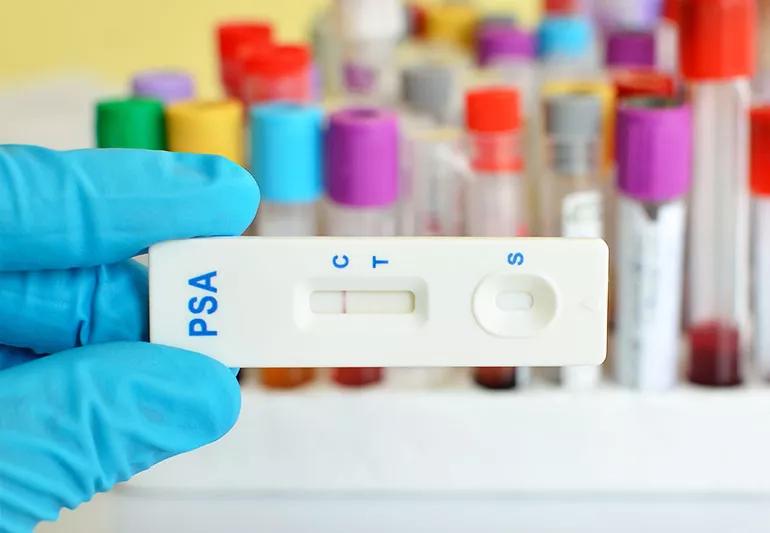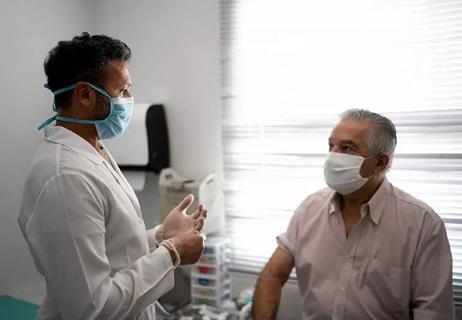This simple blood test can be key to early detection

A: Let’s answer that question with another question: If there were a simple test that could quickly determine your risk of having one of the world’s most common cancers, would you take it?
Cleveland Clinic is a non-profit academic medical center. Advertising on our site helps support our mission. We do not endorse non-Cleveland Clinic products or services. Policy
For most, the answer is surely “yes” — which explains why a PSA (prostate-specific antigen) test is viewed as a key tool for people with a prostate to manage their health after they reach a certain age.
But let’s start with some basic information. A PSA test is a blood test used to gauge the risk of prostate cancer. The prostate is a small gland that is part of the male reproductive system.
Is the PSA test without flaws? No. It’s possible to get test results showing elevated PSA levels without having prostate cancer. Higher levels could be a sign of an infection in the prostate or urinary tract, for instance.
But at the end of the day, a PSA test provides information that can lead to earlier detection and treatment of prostate cancer — particularly for those with higher risk levels. (More on that in a moment.)
The following statistics from the American Cancer Society help illustrate why testing is so important:
The American Urological Association recommends that people with a prostate between the ages of 55 and 69 look into getting a PSA test. It’s especially critical for higher risk groups, including those who are Black or have a family history of the disease.
Those with a higher risk of prostate cancer often choose to get an annual PSA test, sometimes starting before age 55. Those at lower risk often get a PSA test every other year. Some age 70 and older also choose to continue testing.
Talk to your doctor about what might be beneficial for you and how a PSA test can help you monitor for prostate cancer.
As mentioned, the test is simple — just a few minutes of your time and a needle poke. But it’s something you can do to get a better picture of your health and potentially learn about issues early enough for treatment and a good outcome.
With that in mind, here’s one more statistic: There are more than 3.1 million people alive today in the United States who have been diagnosed with prostate cancer at some point.
Early diagnosis from a PSA test improves one’s chances of joining that group.
— Urologist Samuel Haywood, MD
Learn more about our editorial process.

You don’t have to cope in silence with issues like urinary incontinence and sexual dysfunction

Family history and genetics may heighten your risk for prostate cancer

Anyone with a prostate can get prostate cancer, but some symptoms could be masked

Check-in with your care team, and focus on low-impact exercises and walking for good gains

Sex may be different after prostate cancer treatment, but it can still be enjoyable

An enlarged prostate, diuretics and bladder irritants can all contribute

Not following recommended follow-ups could put you at risk

If this common cancer is caught early, the prognosis is good

Your metabolism may torch 1,300 to 2,000 calories daily with no activity

A gentle touch in all the right places may help drain your sinuses